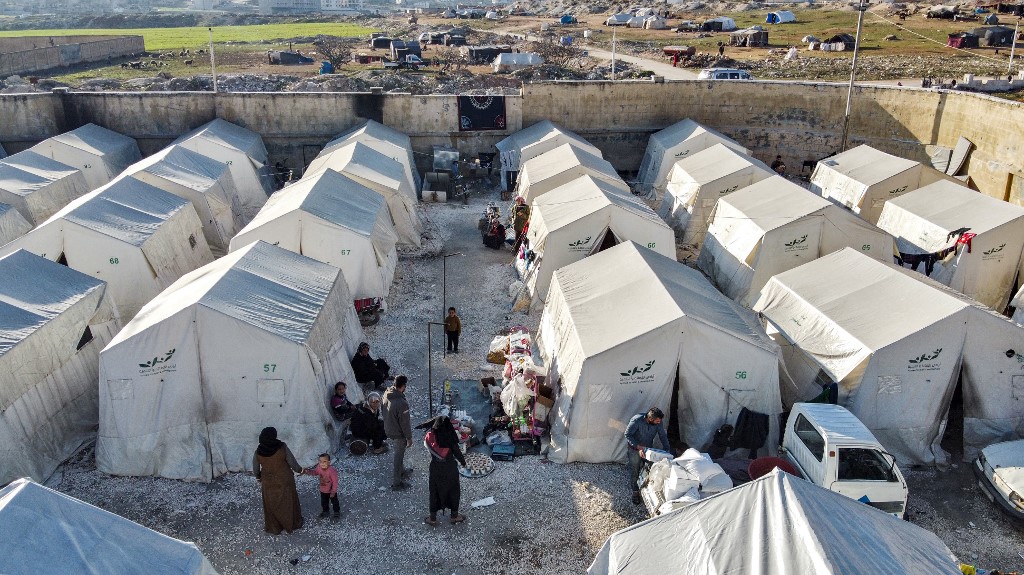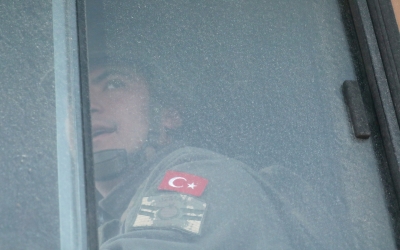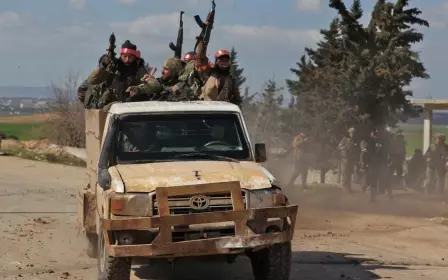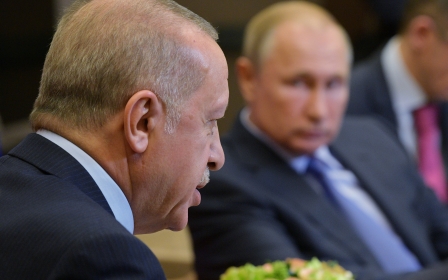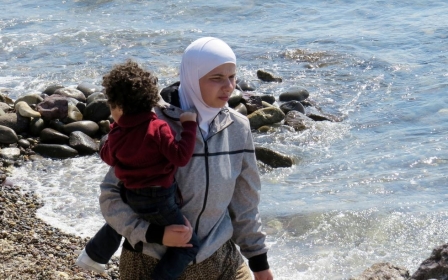Syria war: The myth of Western inaction in Idlib
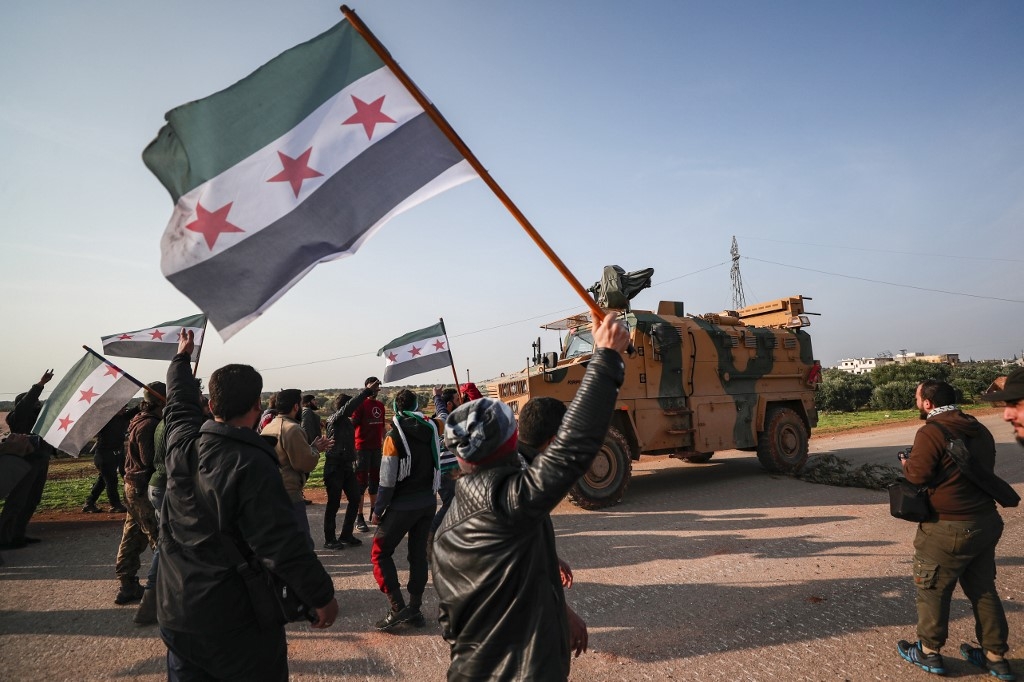
Amid the global crisis over the coronavirus pandemic, the Syria conflict has quietly entered its tenth year. Over the span of a decade, the same sad images have become familiar: bombed-out towns, bereaved families and flows of refugees.
The latest round of fighting in Idlib was recently paused after a Russian-Turkish deal. Yet, while fighting might have been disrupted by the Covid-19 outbreak, most expect the ceasefire to eventually break down. If and when that happens, we will likely see another familiar trope of this war: laments over Western inaction.
But this "inaction" is a myth. Commentators and politicians might disapprove of Western policies, but the current situation in Idlib and Syria has not occurred without Western input.
Differing priorities
On the contrary: Western governments, especially the US, have played a leading role in creating the current mess. This is no conspiracy, and few leaders wanted the current outcomes. But the Syria debacle is still partly the product of Western actions, through a combination of errors, limited interest and differing priorities.
New MEE newsletter: Jerusalem Dispatch
Sign up to get the latest insights and analysis on Israel-Palestine, alongside Turkey Unpacked and other MEE newsletters
Going back to 2011, when protesters rose up against President Bashar al-Assad, Western governments indirectly encouraged civil war. Assad himself bears most of the responsibility for this, after slaughtering peaceful protesters who eventually took up arms - but Western policies helped. When leaders called for Assad to “step aside”, they helped to create a zero-sum conflict.
EU leaders have been relatively muted on the increasing authoritarian practices of Ankara and its growing closeness to Moscow, fearing major criticism could risk the vital deal
Moreover, by helping arms flow into Syria, Western governments have poured fuel on the fire. In her memoirs, former Secretary of State Hillary Clinton admitted that by March 2012, the US effectively green-lit Washington’s allies Turkey, Saudi Arabia and Qatar to send weapons and money to rebel forces. Around the same time, the CIA arranged its own weapons and training for the rebels, a programme that expanded over time.
The domination of radical Islamists within the rebel movement - such as the former al-Qaeda affiliate Hayat Tahrir al-Sham (HTS), which now rules much of Idlib - was also influenced by Western policies. Again, Assad and others bear much responsibility: Damascus deliberately released imprisoned jihadists to radicalise the opposition; Qatar and Turkey turned a blind eye to extremists they backed; and Iran sent sectarian fighters to help Assad, radicalising some Sunni rebels.
On the US side, the administration of former President Barack Obama let the moderate rebels and their regional allies believe that Washington would eventually intervene directly against Assad. When this did not occur, it empowered the radicals who had always opposed seeking Western support, and undermined the moderates who had rested their strategy on eventual US intervention.
Migrant influx
This was made worse when Obama ultimately did intervene directly against the Islamic State, showing that it was willing to act to save lives (the Yazidis), that it was willing to heavily arm and fight alongside Syrians (the Kurdish-led Syrian Democratic Forces, or SDF), and that it was willing to deploy its own air force.
Yet, it also showed the rebels that it did not prioritise their battle against Assad sufficiently to do this for them. Even though more weapons and training were heading to the moderate rebels, it was a fraction of what was sent to the SDF, again undermining those battling for relevance against radicals.
European leaders also showed that their true priorities lay elsewhere. The 2015 migrant crisis, partly fuelled by the Syria conflict to which they had contributed, led the EU to strike a deal with Turkey on restricting the flow of refugees. Desperate to keep this in place, EU leaders have been relatively muted on the increasing authoritarian practices of Ankara and its growing closeness to Moscow, fearing major criticism could risk the vital deal.
In this context, they have not raised serious objections to Turkey’s increased presence in northern Syria or its inability to prevent the HTS takeover in Idlib, all contributing to the latest round of fighting.
Blow from the Trump administration
US President Donald Trump’s Syria policies have similarly played a role. The triumph of HTS was virtually guaranteed when he cut the last US programme funding moderate rebels in July 2017. A year later, he declined to protect a de-escalation zone in southern Syria that he had guaranteed with Russia, ensuring its fall.
Not only was this another blow to the few remaining moderate rebels, it also allowed Assad to continue his programme of deporting surrendering rebels who refused to reconcile and their families to Idlib, ensuring it became a densely populated, vulnerable refuge housing several million people.
More recently, Trump’s decision to partially withdraw from eastern Syria emboldened Assad, Russian President Vladimir Putin and Turkish President Recep Tayyip Erdogan, all of which impacted the Idlib crisis.
Western policy, therefore, has played a major role in shaping the outcome of Syria’s war and the current conflict zone of Idlib. Today, Idlib is a densely packed region of vulnerable civilians, ruled over by HTS radicals, with next to no Western influence. Their fate will be determined by Russia, Turkey and Assad.
But this has not accidentally happened while Western governments looked the other way. In most cases, the events that have led to this outcome in Syria since 2011 were heavily influenced and often led by Western leaders. They might not have foreseen these outcomes, but much of the blame for this crisis lies with them - although they share it with Assad, Putin, Erdogan and others. It is a myth to say Western governments have been “inactive” in any way.
The views expressed in this article belong to the author and do not necessarily reflect the editorial policy of Middle East Eye.
Middle East Eye delivers independent and unrivalled coverage and analysis of the Middle East, North Africa and beyond. To learn more about republishing this content and the associated fees, please fill out this form. More about MEE can be found here.



